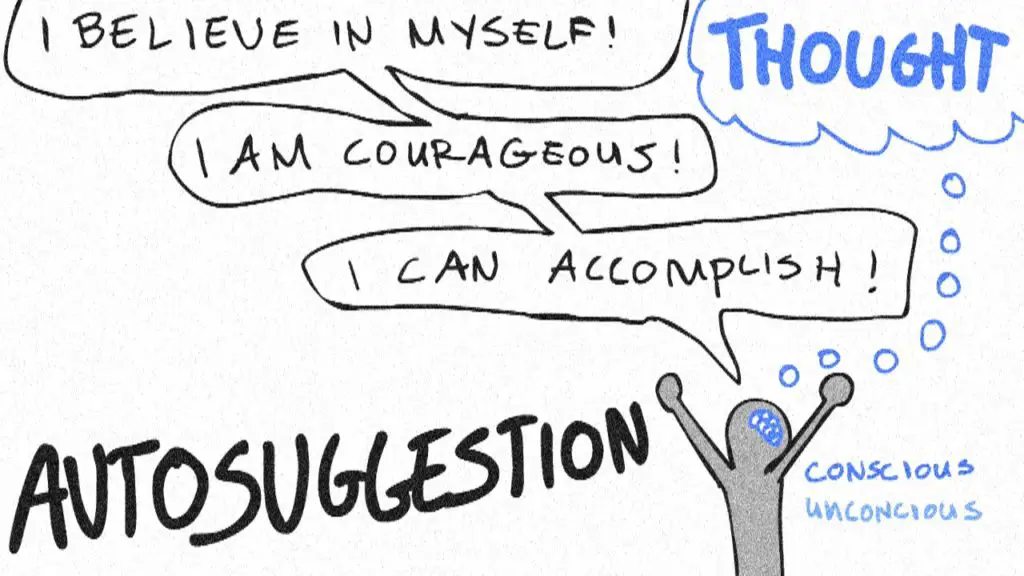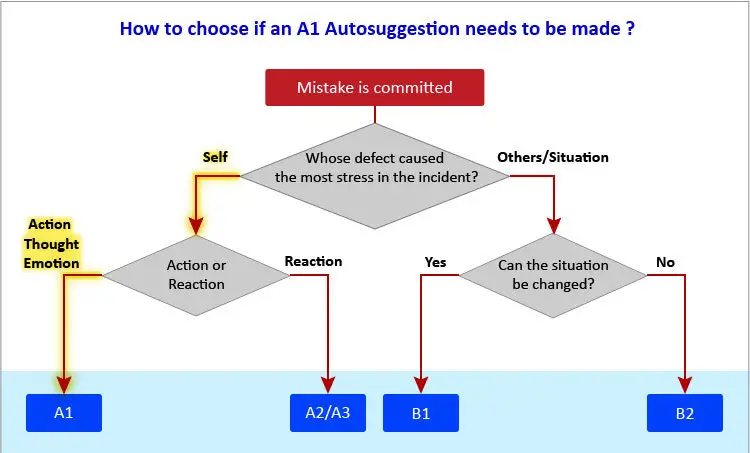The Placebo Effect: The Doorway to Your Self-healing Powers

Have you heard of this term "The Placebo Effect"? Imagine you have a headache. You consult your doctor. They prescribe you a pill to cure headaches. You take the pill. And you feel relieved. Well, that happened as expected; there’s nothing special about it. So why are we talking about such a common, boring, everyday scenario?
Well, there’s a twist to this plot: the pill you took was just a sugar pill! There were no active medicinal ingredients in that pill that could have worked to cure your headache. But then, your headache really did get cured! So how on earth did this happen?!
The Placebo Effect
The Placebo Effect is the name given to the healing effect experienced by people (and even animals) simply because of their expectation and belief in a substance or procedure, even though that substance or procedure has no in-built properties for bringing about the healing. And such a substance or procedure is referred to as the placebo. This effect has been documented throughout history and across all cultures, so it is not just an illusion or delusion of some silly people, but a real fact of our world.
The word placebo stands for “I shall please” in Latin.
It shares its etymological roots with the English word “placate” which means “to cause to be more favorably inclined; to gain the goodwill of”. In short, we can understand it as something that is beneficial for us just because we believe that it will be beneficial for us!
The placebo effect has its antithesis in the nocebo effect, which stands for “I shall harm”. In this latter case, subjects experience negative effects from a substance or a procedure that is actually inert or harmless by itself. Both the placebo and nocebo effects thus demonstrate the power of our thoughts or beliefs on our bodies.
The Free Will “Myth”
The conceptual model of a mechanical universe popularized by Newton has stuck in our modern culture. In this model, the universe is constructed out of simpler elements, like atoms, and by combining these simpler elements we get the greater complexity that we see around us and inside us. The direction of cause-and-effect in this model happens to be bottom-up, or in the upward direction: from simpler to complex, from smaller to bigger. The fundamental forces between atoms are responsible for whatever happens in the macrocosm.
This “upward causation” paradigm took hold in the mainstream worldviews because it seemed to explain many kinds of observable phenomena. From the motion of earthly objects that we can see and touch regularly, to the motion of faraway celestial bodies like planets and stars as well.
Free Will set Free!
However, this led the classical scientists and philosophers to conclude that we can therefore have no freewill, since it is the subatomic and atomic-level interactions that are ultimately responsible for the motions of elements that compose us. This led to a deterministic and fatalistic view of the universe, where we are nothing but mere puppets. Not a very empowering idea, is it?
While there has never been a consensus in academia whether freewill is real or not, and remains a hotly debated topic, we have ample evidence from the studies of the placebo effect that there is much more to our universe than these classical paradigms permit. The way our minds are able to alter our bodies clearly challenge the mechanistic, Newtonian models of “upward-causation”-only universe. The placebo effect shows that there is also a “downward causation” occurring, whereby the complex entities like our brains are able to affect the simpler entities like cells, proteins and hormones in our bodies.
The Magic of Your Mind, Incorporated
Apart from the placebo effect, psychologists study habit-formation in people and animals. Also, how suggestibility and hypnosis is related to our subconscious minds.
It is beyond doubt that our minds hold great powers that remain mostly untapped and unused.
Most of us, as regular individuals, use these hidden powers of our minds unintentionally and accidentally. But these powers of suggestion, corporations tap habit-formation and addiction for their commercial interests. This raises ethical concerns.
Look at the advertising and propaganda that gets bombarded to you via both the traditional and modern media. In recent years, machine-learning-driven personalized content streams are used to hook users to products, increase user engagement, and therefore revenue generation. It is justifiably called “the attention economy”. And it doesn’t simply grab our attention. It alters our very habits, personalities, and cultures. The behavior and image projections of celebs and influencers influence the perceptions of the masses. It defines the fundamental ideas like "happiness" and "success".
Autosuggestion: Applying the Placebo Effect for Personal Success
The primary principle behind the working of the placebo effect is our suggestibility. This is our ability to have an open mind and be open to new information. We saw this in the opening example, where the idea that we were taking a headache pill was enough to cure our headache, although it was just a sugar pill. Studies of optimists and pessimists have shown that the positive effect or the placebo effect is more pronounced among optimists; conversely, the negative effect or the nocebo effect is more pronounced among pessimists.
This tells us how our personalities create our personal realities, both positive and negative.
Now, our personalities are nothing but patterns of habit and preferences that have been ingrained in us by our environment after years of impression. Our parents, siblings and close friends tend to have the most impact, both positive and negative, on shaping our personalities. But as we discussed in The Most Dependable Investment, the one asset that can be the most under your control is you yourself.
This means we can intentionally prune and sprout elements of our personality by something called autosuggestion: here, we enter a relaxed state of meditation, and think about what negative traits we intend to remove, and what the replacement positive traits are. Remember, we always need to fill the void of bad habits or traits with good ones: we can call this “void management”. An idle mind is the devil’s workshop. We ought to make sure that when we remove a bad trait, we fill the resulting “void” or “gap” with a positive trait.
Autosuggestion Meditation For the Win!
Doing such autosuggestion meditation exercises regularly utilize the neuroplasticity or the learning ability of our brains, and rewrite even the parts of our brain that we cannot control when in our full waking state. Or, in other words, we can access and rewrite our subconscious minds in those more relaxed meditation states.
The autosuggestion instructions that we tell ourselves during meditation will depend on the crisis we are facing and the purpose we are after: it can be about feeling more optimistic (anti-depression), relaxed (stress management), patient and kind (anger management), unconditionally loving (relationship issues), feeling inspired and involved in our work (career and productivity) etc. Even the people undergoing chronic pain conditions or physical injuries give themselves autosuggestion instructions about healing faster and feeling relieved, and report great results.
Thus, the placebo effect illustrates the power that our minds can have over matter.
From Dystopia to Utopia: Learning the Method to this Madness
If the previous paragraph sounded like it was getting dark, don’t despair because there’s hope. We now know that the placebo effect is a real property of our minds, bodies and the universe. It tells us that if we learn to use our thoughts and beliefs more intentionally. And we will be able to tap and utilize our latent powers. The most common application of the placebo effect is to use our minds to improve our health individually.
In our modern-day culture and curricula, we never really learn how to utilize these powers of our minds. As a result, we had to rediscover it through a series of accidents. Believing in placebo sugar pills and fake medical procedures and surgeries can lead to actual health benefits. It illustrated how there is downward causation happening in our universe. From more complex entities to the simpler ones that compose them.
Beginning of an Adventure, Into our Inner Universe!
In the case of medical examples, researchers are showing that our bodies are like a magical pharmaceutical factory. Which is able to produce the required chemicals and heal itself. Naturally, this poses competition to the pharma industry, and they have been marginalizing the placebo effect. The industry mainly uses placebo effect in clinical trials to test the effectiveness of actual pharma drugs. But we know that we can utilize the placebo effect to train people to use their minds better.
With such training, that they can heal and improve themselves, and live empowered lives.
As a result, we have become addicted as a society. To always be expecting every kind of help to come from outside. Feeling sick? Pop a pill. Feeling dull? Take a caffeinated drink. Feeling bored? Tap on the phone and find something interesting. We have become a technologically strong society with mentally and physically weak people.
We can truly solve this addiction to excessive external dependencies only with an internal solution. By tapping into the hidden, latent powers of our minds. We can train our minds, intentionally design and form routines and habits, and strengthen ourselves from within. Be intentional, think positive, stay strong!






